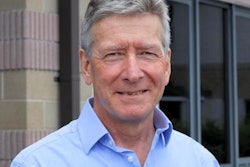Almost five years have passed since I wrote an article on this website about happiness in radiology departments and how we might assess it. Hard to believe it's really that long ago.
There has been plenty of water under the bridge since then. The small matter of a global pandemic for a start, the ripples of which are still being felt. It has amplified the impact of factors already in play. The global healthcare workforce crisis has become ever more apparent and is keenly felt in radiology. Demand for medical imaging continues to rise at rates outstripping our capacity to deal with it.
In the U.K., the combined effect of the pandemic and the measures taken to combat it has been to create a huge backlog of patients waiting for tests and treatment. The full impact may not be known for a long time to come.
The growth of teleradiology has continued, fuelled by the inability of our departments to meet the increased demand as well as the backlog, and more and more radiologists are choosing to work from home. At the same time -- perhaps a little late in the day -- there is a dawning recognition amongst employers that increasing levels of work-related stress and burnout among healthcare staff threaten our ability to deliver anything like the service that our patients need.
So, it seems timely to ask the question again: how happy is your radiology department, and how can you tell?
Leading by example
Let's start at the top with the leadership. Is the position of head of your department a popular one? Can your clinical leader be sure of the support of at least the vast majority of colleagues? Or is it a thankless task, a job that no one wants? Does the hapless individual find themselves criticized and undermined from all sides?
Evidence from the world of business is clear that highly performing teams meet frequently. The pandemic-induced expedient of Zoom and Teams calls was a necessary temporary measure, but it is a poor substitute for direct human-to-human interaction. How often do you see and speak to your colleagues? Is it every day or once in a blue moon?
And that brings us to the question of remote working. During the time of COVID-19, we saw the rapid dissemination of technology to facilitate home reporting. But now that the worst of the pandemic is over, have your colleagues returned to the department because they enjoy the company of the people they meet at work? Or have they found reasons to stay away in order to avoid them?
Another related matter is the issue of collective ownership of the service. To what extent do you and your colleagues feel responsible for the whole service and take pride in it? Or do colleagues focus only on their personal responsibilities? For example, how much effort will colleagues put into covering gaps in the service left by sickness absence at short notice?
Healthy work environment
All of us make mistakes. Talking about them openly and allowing everyone to learn from them can be difficult and requires a supportive culture. If radiologists are reluctant to discuss their errors for fear of criticism or ridicule, there is something fundamentally wrong.
Just as we all make mistakes, we all get a lot of things right too. In a well-functioning department, colleagues will develop the habit of giving positive feedback to each other, and not just about the occasional "golden spot." How often does this happen in your department? Do you have a system for delivering positive feedback?
Some of the most astute observers of the culture in our departments are our trainees. Do junior radiologists want to train in your department? Do you ask them how it feels to work there and act on their responses? And crucially, do they want to return to work in your department again once their training is complete?
You might ask whether any of this really matters. Beyond the obvious point that no one wants to be miserable, staff shortages are going to be a factor for the foreseeable future. Happy staff in any walk of life are more productive and likely to work for longer. Most important of all, there is a wealth of evidence that improved staff morale leads to better outcomes for patients.
I'm not suggesting that the list of factors mentioned above is comprehensive, but if your department is scoring well in all these domains, it sounds like the sort of place where I'd like to work.
Dr. Giles Maskell is a consultant radiologist at Royal Cornwall Hospitals National Health Service (NHS) Trust, Truro, U.K. He is a former president of the U.K. Royal College of Radiologists. Competing interests: None declared.
The comments and observations expressed herein do not necessarily reflect the opinions of AuntMinnieEurope.com, nor should they be construed as an endorsement or admonishment of any particular vendor, analyst, industry consultant, or consulting group.



















